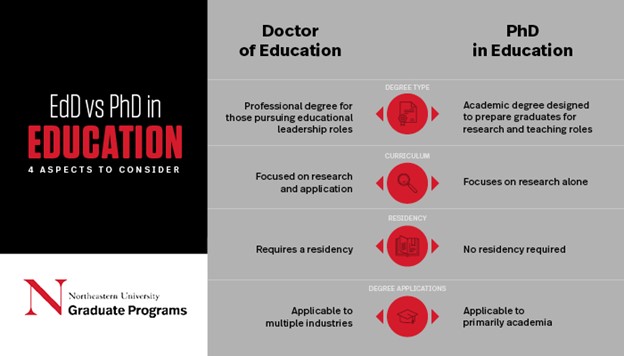
The Path to Becoming a Dean: 3 Considerations You Should Know!
Ever dreamt of becoming a transformative leader in academia?
As a dean, you hold the keys to shaping the future of educational institutions. Deans are pivotal in steering the strategic vision of colleges, ensuring academic excellence, fostering community engagement, and maintaining financial health. It's a role that demands diverse skills and a profound understanding of the inner workings of an educational institution.
Whether you're an aspiring academic or an experienced administrator aiming for this prestigious position, understanding the path to becoming a dean is crucial.
Let’s explore the considerations that can guide your career to this influential role.
Understanding the Role of a Dean
Let’s get to know about the role of a dean in detail:
- Responsibilities and Authority
Becoming a dean means stepping into a pivotal role that touches nearly every part of a college or university. Deans are the driving force behind advancing the institution's mission and ensuring it thrives in every aspect, from academic excellence to financial stability. The role of the dean involves a wide range of responsibilities.
Deans are deeply involved in hiring faculty and staff, which means they help shape the personnel that will educate and support students. They work closely with admissions to drive student retention, which can involve setting enrollment standards and overseeing curriculum development.
Moreover, deans are responsible for managing academic programs. This includes establishing academic standards, determining which classes fit certain study tracks, and evaluating student performance to ensure educational objectives are met. On top of academics, deans play a crucial role in budgeting and fiscal planning, ensuring that the institution's financial health aligns with its strategic goals. A dean’s authority within their college or department is significant, allowing them to make key decisions that can influence the institution’s direction.
Before you move to the topic, can we ask you a quick question? Do you follow us on Social Media? If not, then you’re missing out on a lot of informative content. We regularly share upgraded educational content, tips, feedback, and more. Check us out by clicking the profiles here - Facebook / Twitter / LinkedIn / Pinterest / Instagram / YouTube
- Importance of Diverse Skills
To excel, deans need a variety of skills. Interpersonal and leadership skills are crucial as deans work with diverse groups, like faculty, students, and administrative teams. Problem-solving skills are essential, particularly when dealing with student complaints or institutional challenges.
Financial acumen can't be overlooked, either. The majority of the deans often oversee budget planning, requiring them to balance the books while striving for the growth of their programs. In a constantly evolving academic landscape, keeping up with trends and technologies is a must.
Moreover, deans often partake in fundraising efforts, engaging alumni and leading events to secure donations, demanding strong networking and communication abilities.
3 Key Considerations for Becoming a Dean
Here are the 3 key considerations that you must know to become a successful dean:
1. Education Requirements

Embarking on the journey to becoming a dean starts with education. Many deans hold terminal degrees such as a PhD, EdD( Doctor in Education) or by pursuing Online Degree Programs for Professionals, equipping them for leadership roles within academic settings. However, the field of study might vary.
For example, a dean of engineering might hold an advanced degree in mathematics. For those who set their sights on a deanship early in their career, pursuing a master’s degree in higher education administration can be a strategic move, providing an understanding of the structures and functions of higher education institutions.
2. Gaining Relevant Experience
Experience in academia is a cornerstone for aspiring deans. Many begin as professors, honing their skills in teaching and curriculum development. This path not only enriches their understanding of educational processes but also builds credibility in front of selection committees. Participating in experiential learning programs can enhance this trajectory, offering practical, real-world applications of academic concepts and preparing future deans to face dynamic educational environments.
3. Importance of Networking
Networking is a powerful asset on the path to becoming a dean. Statistics show a significant number of jobs are filled through networking, and the same applies here. Building connections with key stakeholders, faculty, and other professionals in education can open doors and provide insights into industry trends.
Networking isn’t just for career progression, it’s also critical for institutional advancement, helping deans foster relationships that can support their college or university’s goals through partnerships and collaborations. Whether it's through academic fairs or online platforms, building a robust professional network is indispensable for any prospective dean.
Final Thoughts
Embarking on the journey to become a dean offers a world of opportunities and challenges that promise growth and fulfillment in the academic realm. Mastering the complexities of educational leadership, staying informed with industry trends, and leveraging networking will not only boost your career forward but will also enhance the educational landscape of your institution.
Remember, every step you take, be it acquiring advanced education by pursuing courses like Online Degree Courses, gaining invaluable experience, or building a robust professional network is a stride towards shaping a vibrant educational future.
Embrace these opportunities with enthusiasm and dedication, and you will be well on your way to making a significant impact as a dean.
We believe education should be accessible for everyone. That’s why we don’t charge for our blogs. Find the right course that will help you in your career with us, contact us at +66-21055721. You can mail us at act@asiancollegeofteachers.com

